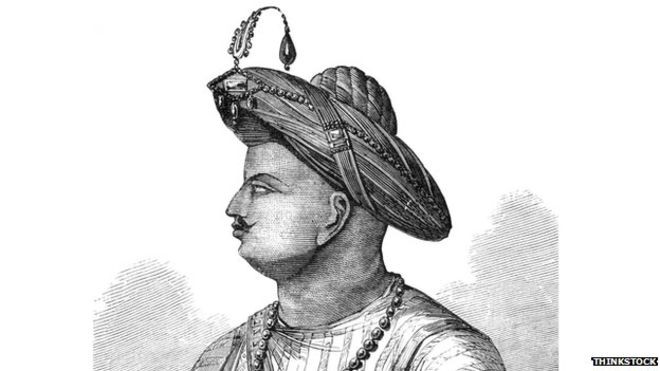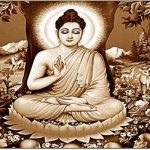Tipu Sultan is both demonized and glorified by different segments of Indian society. The latest controversy arose due to the decision of Karnataka to celebrate Tipu Sultan Jayanti, or the birthday of Tipu Sultan, on November 20.
Tipu Sultan was the Muslim ruler of the Kingdom of Mysore and has been glorified in the Indian nationalist, anti-colonial narrative for his unwavering opposition against the British, which ended with his death in 1799.
However, Tipu Sultan’s legacy is not as simple as many Hindu nationalists portray. Many of those who live in Karnataka have never thought of Tipu Sultan as anything other than a religiously intolerant tyrant, who extorted taxes and demolished Hindu temples in order to pay for his European-style army.
Tipu Sultan was known for his religious tolerance. Tipu Sultan, after donating money and jewelry to the Sringeri Sharada Peetham, urged the swamiji, through a notification, to pray for the well-being of all citizens.
The Controversy
On the allegations that Tipu was involved in Hindus massacre during his rule, Prof B Sheik Ali, a well-known authority on Hyder Ali and Tipu Sultan, says “Tipu’s actions must be seen in the context of his role as a ruler. His actions must not be seen as being motivated by the religious or the communal, but the political. Minor rulers opposed Tipu and allied with the English, and hence Tipu had to establish his power in the wake of constant provocations. The number of conversions has been vastly exaggerated. If he was harsh on Hindu rulers, he was even more so on Muslim rulers like the Nawabs of Savanur, Cuddapah and Kurnool, and the Muslims of Malabar and the Mahdavis. Tipu had an eclectic and liberal religious policy, which has been distorted by colonial historians. He raised Hindus to a high position in his government. Tipu gave liberal grants to temples. Records show as many as 156 temples received grants. The letters written by Tipu to the Swamiji of Sringeri express such sentiments of respect for Hinduism as to disprove any charge of religious intolerance leveled against him. He went to the extent of furnishing the mutt with funds for reinstalling the displaced idol after the temple had been desecrated by Maratha troops.”
This is not the first time that Tipu’s name has been dragged into a controversy. It began some years back when Sanjay Khan made a tele-serial based on Bhagwan S. Gidwani’s book, The Sword of Tipu Sultan. His name was once again dragged into a controversy when the Congress government intended to celebrate his birth anniversary in 2014. There was opposition when a proposal was made to establish a university named after him.
Liberal & Secular
According to an article written by Muzaffar Assadi, Chairman, Department of Political Science at the University of Mysore: Tipu Sultan combined tolerant inter-religious traditions, liberal and secular traditions, anti-colonialism and internationalism. He could do this as he had strong roots in Sufism, which is not explored much by historians. He belonged to the Chisti/Bande Nawaz tradition of Sufism.
In fact, Tipu was radical in more than one sense. He was the first to ban consumption of alcohol in the entire State, not on religious grounds, but on moral and health grounds. He went to the extent of saying: “A total prohibition is very near to my heart.” He is credited with introducing missile or rocket technology in war. He was the first to introduce sericulture to the then Mysore state. He was the first to confiscate the property of upper castes, including Mutts, and distribute it among the Shudras. He is also credited with sowing the seeds of capitalist development at a time when the country was completely feudal. He thought about constructing a dam across the Cauvery in the present-day location of Krishnaraja Sagar. He completed the task of establishing a biodiversity garden named Lal Bagh.
Tipu’s Legacy
His tolerance is reflected in his annual grants to no less than 156 temples, which included land deeds and jewelry. His army was largely composed of Shudras. When the famed Sringeri Mutt, established by Shankaracharya, was invaded by the Maratha army, he issued a firman to provide financial assistance for reinstallation of the holy idol and restoring the tradition of worship at the Mutt. His donation to the famous Srikanteshwara temple at Nanjangud; the donation of 10,000 gold coins to complete temple work at Kanchi; settling the disputes between two sects of priests at the Melkote temple; and gifts to Lakshmikanta temple at Kalale are all well-known. Interestingly, Srirangapatna, a temple town, remained his permanent capital till the end of his rule. He was also instrumental in constructing the first-ever church in Mysuru. Incidentally, well-known historian B.A. Saletore calls him “defender of Hindu Dharma”.
The allegation of forcible conversions has to be seen in the background of political exigencies — either they were with the colonialists such as in the case of Christians of Dakshina Kannada, or were waging a protracted guerrilla war as in the case of Coorg. Here, historians have distorted the facts by reducing political exigencies to the “communal ideology” of Tipu.
A ruler, who once identified himself with the American and French Revolution and Jacobinism, has remained an enigma to many. That a man who ruled for just 16 years continues to haunt Hindutva groups obviously means that Tipu continues to exist in the political discourses, political narratives as well as in the imagination of nation-building. This is where the irony of history lies — one cannot just bury Tipu in the annals of history.
Must read : Karthika Masam : Rituals that Blend Your Life
Must Read : Karthika Masam : Month of Illuminaion & Enlightment









